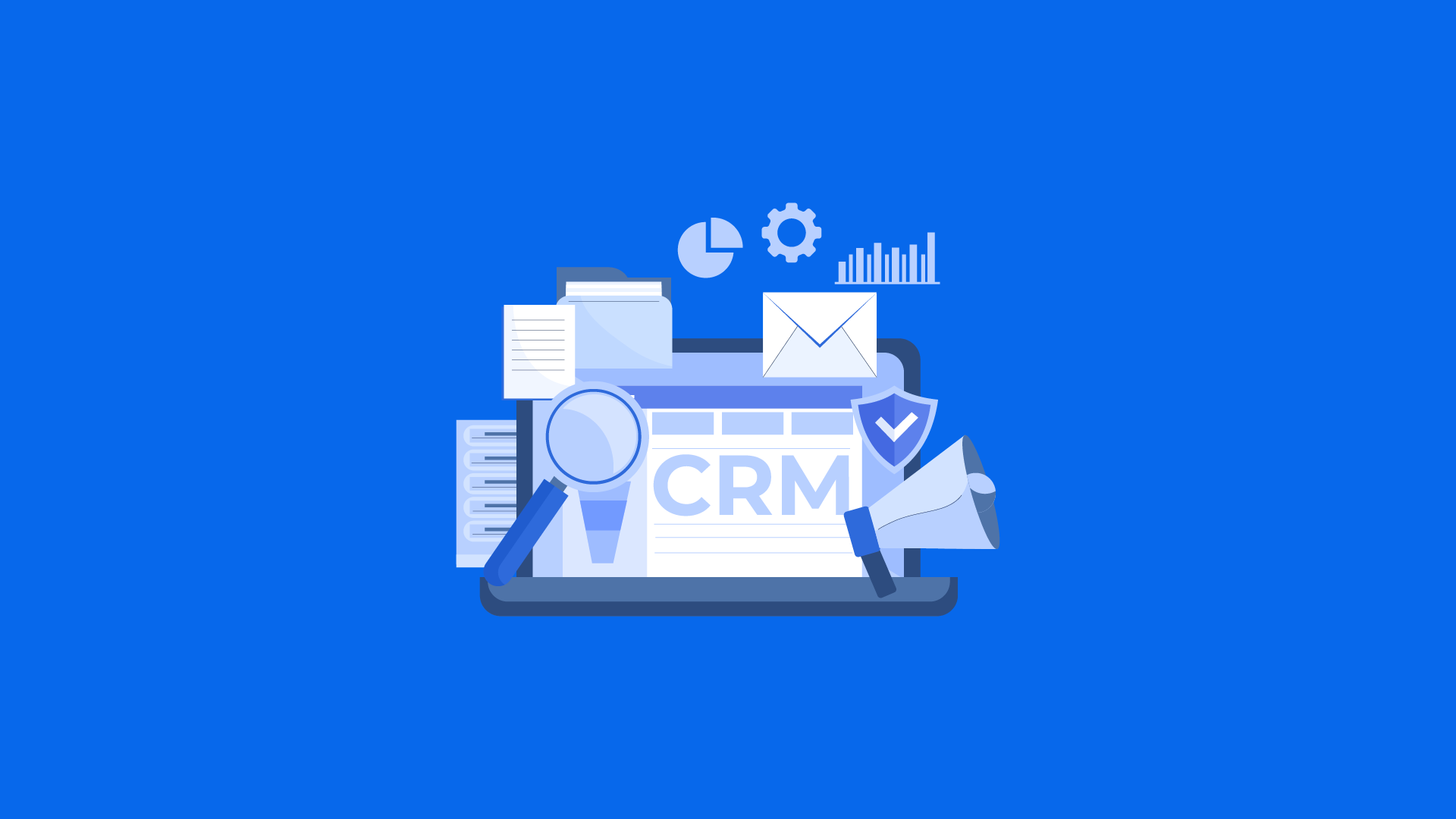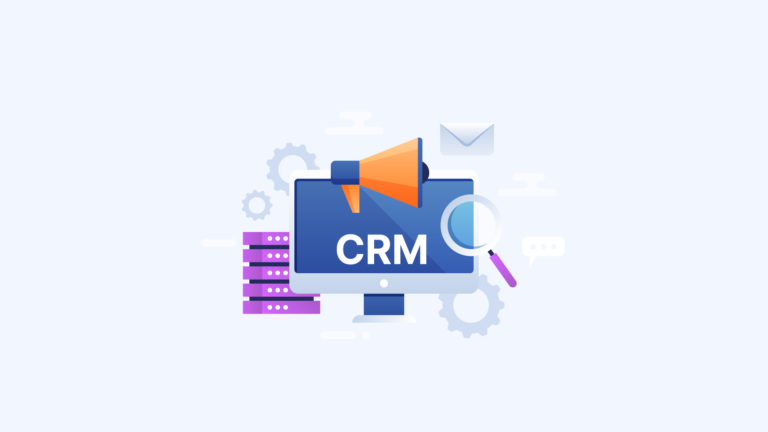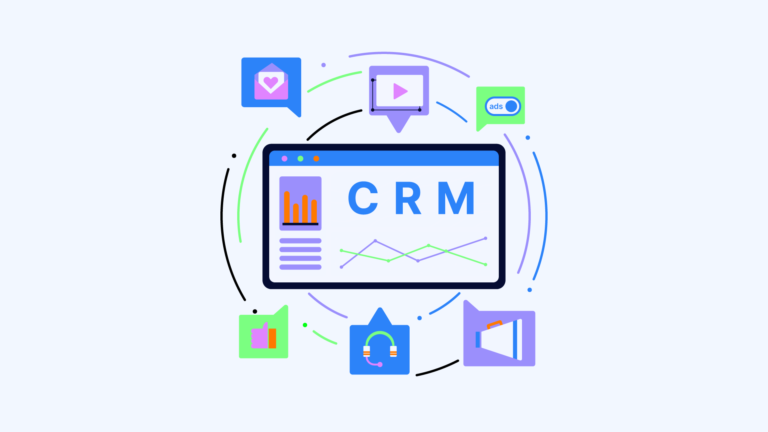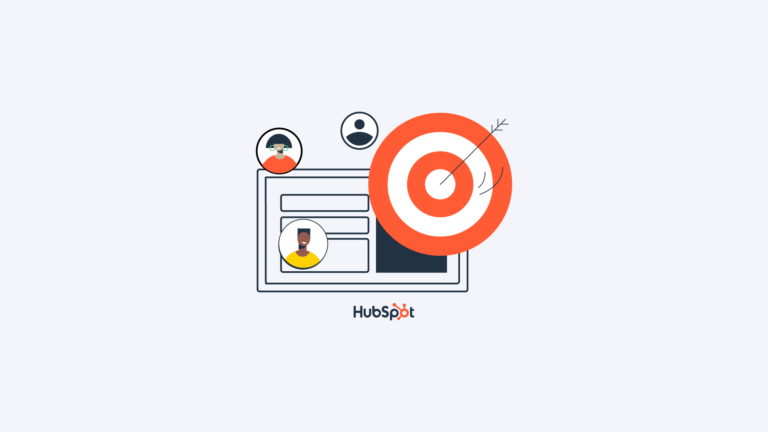|
Getting your Trinity Audio player ready...
|
As a business owner, when choosing a CRM system, it is important to evaluate each feature based on your own business goals. For example, if you are looking for a feature that will help you streamline sales processes, choose a solution that provides multiple levels of automation.
The more access your sales teams, marketing teams, and customer support teams have to customer data and reports, the more effective they will be in improving customer relationships and increasing sales.
However, if your goal is simply to provide your teams with easy access to customers’ contact information and organize data for easy retrieval at any time, then a system without official customization options might be sufficient.
The process, however, doesn’t have to be complicated. In this article, we’ll help walk you through the decision-making process for choosing your ideal provider by highlighting key factors to consider and reviewing some of the most popular CRM systems currently available on the market.
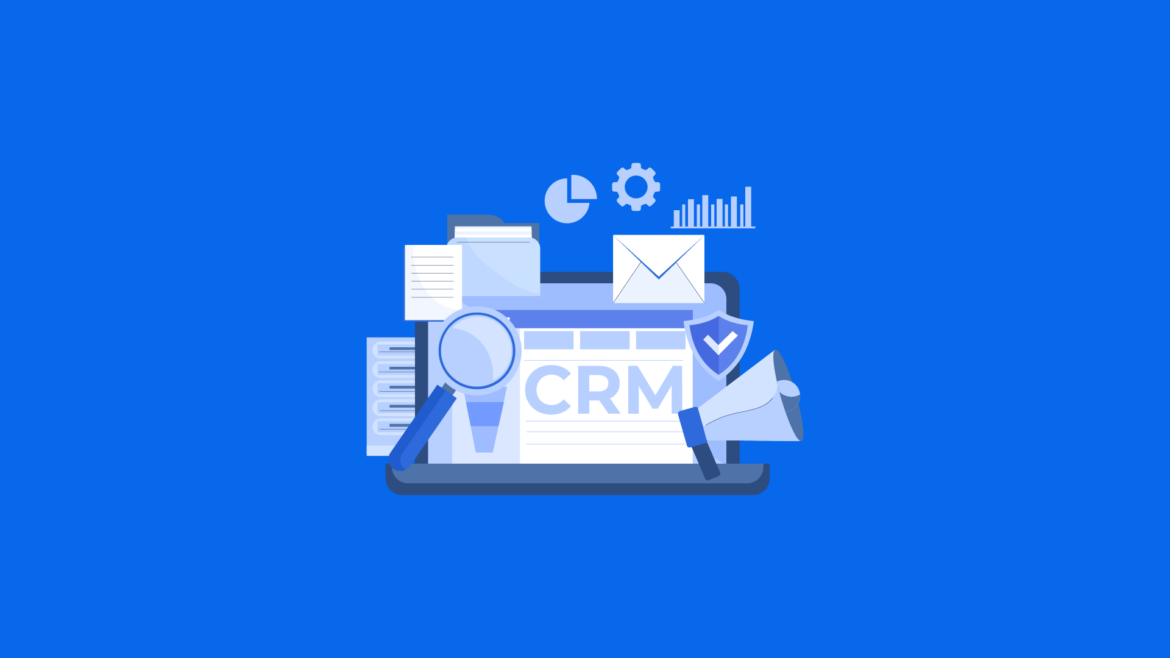
6 Steps to follow when choosing the best CRM for your business
When it comes to choosing a CRM system for your business, there are a few things you need to consider.
1. Know your business needs and goals
First, it’s important to know your business needs and goals. What kind of information do you want to track? How will it help you achieve those goals? What level of customization do you need? All these questions speak to your business requirements for a CRM system.
Also, before you start searching for a new CRM system, take time to think about what you’re hoping to achieve with it. Are you looking for an upgrade from something that’s already in place? Or do you want to start from scratch? Asking yourself these questions will help you narrow down some of the options out there.
You can then set the right business objectives to help you choose the right CRM for your business. Consider this CRM solution for the long term. Look at goals you want to reach in the next one or two years and how the system can help you get there.
Look at this guide on how to set SMART goals to help you get started.
2. Get various departments and teams involved
While it’s important to know what your company needs before making the final decision about which CRM software might be right for them, it’s also important to involve other departments and teams within the company as well.
For example, if someone from human resources wants a specific feature in their program, they may be able to help guide you towards finding one that matches up with their needs as well!
Get the various departments and teams involved. Ask them what they would like out of a CRM system—are they more interested in email marketing or sales data? Does every department have its own set of needs?
Remember that a CRM, though mainly used for sales purposes doesn’t only benefit the sales team. For seamless information include your sales, marketing, customer services, human resources, and more departments so each can outline what they need in a CRM which moves you to the next step in the selection process. That is selecting the right CRM features.
3. List essential CRM features you absolutely need
Once everyone is on board with the project, list all essential CRM features that would be useful for your business. Think about how these can be customized and integrated with other features so that they work together as one big picture but still give each user the ability to customize their experience as needed.
This key feature checklist will help consider what features your business needs in line with each department your company operates with. You can even separate your list into must-have features and nice-to-have features so that when it comes to it you can make the right decision about which CRM software to snub.
Your priority when choosing a CRM should be the security of your customer data, and customer support. Consider areas like a 2FA (two-factor authentication), especially for cloud-based CRM solutions.
In the areas of customer support and sales, team support considers multiple channels of support like social media, email, phone, and live chat to ensure your sales teams don’t miss out on sales opportunities.
Also for your access to customer support from the CRM software, consider how easy it is for you to get technical assistance when you need it.
4. Decide which CRM type is right for your business
Decide which type of CRM software makes sense for your business: is there an app available that works best with mobile devices? Do you want a desktop program where employees can access data from anywhere? Or maybe both? These questions will help narrow down your choices!
You can choose between different types of CRM software that will let you track and manage your different business processes. There are 3 different types of CRM available for your business to choose from.
1. Collaborative CRM systems
Collaborative CRM systems are designed to help teams work together more efficiently by allowing them to share information in real-time. This means that instead of having to wait for someone else to write an email or post on social media, employees can get the information they need from coworkers in their own departments or teams, who might have already worked on the same problem or project.
2. Operational CRM systems
Operational CRM systems may seem like they’re not very helpful when compared with collaborative systems, but they do have some advantages over their collaborative counterparts. For example, if your team works across departments or divisions and needs a single place where everyone knows what everyone else is working on, an operational system will allow them all access to each other’s data at once—which makes it easier than ever before for them to collaborate and share ideas.
3. Analytical CRM systems
Analytical systems are designed to help companies make better decisions based on their data analysis. For example, an analytical approach might show you how many orders have been placed online per hour during certain times of day or weekdays versus Sundays or weekends—allowing you to optimize your marketing efforts accordingly!
Consider if you need a CRM specific to your industry to help you create a shorter list of CRM solutions for your CRM software.
5. Research the best CRM software providers in the market
Research the best CRM software providers in the market so that when it comes time for finalizing your decision (and get set up).
When looking at software providers, ensure they offer all of the essential features that will help you achieve your goals as quickly and easily as possible! Once again: make sure they offer everything
This will help you find out which companies have been around for years and offer a good amount of experience with different types of businesses and customer bases. You can also look at customer reviews and testimonials from satisfied customers to get an idea of what other people think about each provider’s service levels and support options
It’s important to choose a provider who has experience and expertise in providing CRM services for businesses of different sizes and industries. If you’re looking for something simple or quick, then research companies who offer these types of services without any additional costs or fees associated with them.
Signing up for a free trial can help you experience the features before choosing the software for your business. It also gives you the chance to see how easy it is to implement it for different teams and departments.
Also, look into the pricing options available and if they fit your budget. There are different options like being charged per user, or a flat fee pricing structure where there is no limit to the number of users but only on features.
6. Choose the right software and implement it for all teams
Once you’ve narrowed down your list of potential providers, it’s time to choose which one is best suited for your needs.
This can include factors such as cost-effectiveness or ease of use as well as features like user interface customization options or integration with other systems (like Salesforce). It may also be helpful if there are multiple versions available so that you can compare different features side by side before making your final decision.
Once you have made your pick, start your CRM implementation process. You can make the necessary customizations, assemble your team to create the right CRM setting, and make the necessary integrations for your different teams.
These may include customer data management, your sales process, your marketing processes and marketing campaigns, customer loyalty programs, setting up a seamless user experience for your teams, and more.
Below we have outlined our top 5 Picks for the best CRM software you should consider.
What is the Best CRM Software to Consider?
There are many options when it comes to choosing the best CRM software. It can be difficult to know where to begin, but we’ve done the research so you don’t have to.
1. HubSpot
For small businesses, HubSpot is hands down the best CRM solution out there. It’s easy to use and customizable, meaning you can create your own dashboard that fits your needs perfectly. You can track sales deals from different salespeople in your teams, and measure your company goals on the system.
The company also offers free training through the HubSpot Academy on how to use the program, manage sales teams, run marketing campaigns, and more so you’ll feel confident in your abilities from the start. If you’re looking for something more advanced than HubSpot’s free plan, there are still plenty of features available for purchase through HubSpot’s Pro plan or Enterprise plan (which is paid).

Free CRM
HubSpot
A CRM platform that’s powerful and easy to use.
2. Zoho CRM
Zoho is a cloud-based CRM system that offers a wide range of features. Zoho CRM is an excellent choice if you have a relatively small number of users and a straightforward workflow. It’s easy to use, with a simple interface that lets you track leads and contacts in one place. It also has integrations with Gmail, Salesforce, Freshsales, and even PipeDrive.
You can create a free account with Zoho CRM so you can take advantage of their limited features. The free plan includes up to 3 users, contacts of up to 100 per user, and unlimited email contacts. If you decide that Zoho CRM isn’t for you, then sign up for their paid plans: Standard for $18 per user per month; Professional for $30 per user per month; Enterprise for $45 per user per month and Ultimate for $99per user per month for unlimited users when billed monthly.
3. Agile CRM
AgileCRM is an all-in-one solution designed to help small businesses manage their entire customer lifecycle from one platform. It offers unlimited users, unlimited storage, and unlimited email addresses for free (with some limits).
Agile CRM offers a paid subscription option that allows unlimited users and access to features like lead scoring and reporting tools. This is the perfect option if your business has grown beyond what Zoho can handle.
4. Freshsales
Freshsales is an all-in-one sales and marketing software platform that helps companies track their sales pipeline. It allows users to collect data from various systems and reports it back into a single platform, where they can view it all in one place. It also has integrations with Google Analytics, Google Sheets, Gmail, and more.
Freshsales is an attractive option for businesses looking for a free option that offers some of the same features as Freshsales Premium: lead scoring, marketing automation, and more!
5. PipeDrive
PipeDrive is another great choice if you want an affordable CRM solution that doesn’t require too much tech know-how on your part. Its mobile app makes it easy for anyone in the sales department to access their data at all times, no matter where they are or what device they’re using. It also has some great features like lead scoring, which helps separate high-quality leads from low-quality ones so that your team can focus on closing deals instead of wasting time chasing low-value leads down.
Consider the full list of the Best CRM software for your business here.
In Summary: Choose the Right Software
Whether you need a simple customer relationship management tool or a more comprehensive customer resource management solution, there are options on the market that can help your business grow. Just be sure that the system you choose is 100% compatible with your needs, and you will have CRM success.
And remember, even the best CRM out there is only as good as its user. Ultimately, it’s up to you and your sales or support teams to add the personality and flair that makes each CRM such a valuable business tool.
For us, HubSpot has been the go-to choice for all our CRM needs for customer support, customer contact management, and marketing automation. We have found it easy to use as it encompasses all we need in one place and keeps on improving its offering for us as we grow.
